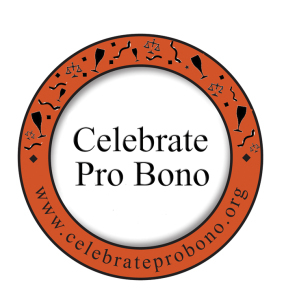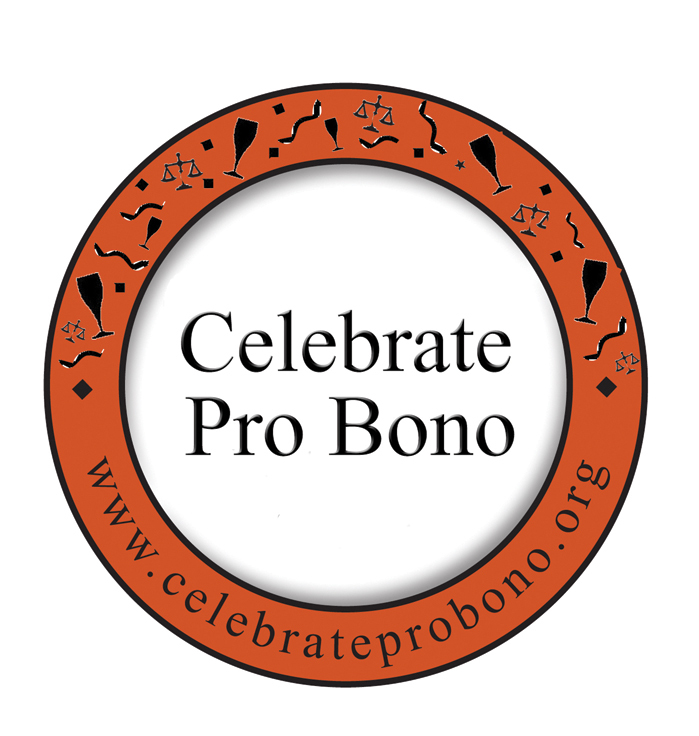“You don’t own anything until you give it away.” – Ernest Hemingway
It is Pro Bono Week. In its observance, I’ve joined a group of bloggers, organized by Kate Bladow, who’ve pledged to blog about what pro bono means to them. Kate will keep track of people’s posts at her blog Technola.
In the month since I committed to this, I’ve wrestled with what to write, with how to put into words the value I place on pro bono. Then last week, a third-year student at the very law school from which I graduated helped focus my thoughts. He wrote an open letter to the school asking for his money back. He expected a “fulfilling and remunerative career,” he argued, and he’s not sure he’s going to get it.
 In my view, he already doesn’t get it. He doesn’t seem to understand that “fulfilling” and “remunerative” are separate concepts. No one should expect a school or an employer to take responsibility for making your career fulfilling. Only you can do that for yourself, using the tools you acquire through school, work and life.
In my view, he already doesn’t get it. He doesn’t seem to understand that “fulfilling” and “remunerative” are separate concepts. No one should expect a school or an employer to take responsibility for making your career fulfilling. Only you can do that for yourself, using the tools you acquire through school, work and life.
To my mind, a law degree is a gift – a very special gift. Yes, we pay dearly and work hard for it. But no one who earns it can deny that he or she is fortunate to have it.
I did not go to law school hoping to get rich. My bank account remains evidence of that. I did not go to law school hoping to land a lucrative job at a large firm. As a matter of fact, I did not go to law school to be a lawyer. I went because I thought an education in law would be valuable to a career in journalism.
Granted, law schools are far from perfect. But my legal education – in the classroom, in clinical work, in my first years as a lawyer and even continuing still – invested me with invaluable knowledge and skills, useful in whatever I do. It taught me self confidence and self sufficiency. It earned me respect among my family, friends and social circles.
For all of that, what I most value about my legal training is that it taught me how to solve problems and help others solve theirs. To me, this is akin to waking up one morning and discovering you’ve acquired super powers. How you use those powers reveals who you really are. Do you exploit them for “remuneration” and power or use them to pursue something fulfilling?
A law degree is a gift. When one receives a gift, it is only right to return the favor. As lawyers, we return the good fortune of having a law license by giving back to our communities. Pro bono isn’t charity and it isn’t just a courtesy. It’s an obligation. It is how lawyers give back for the gift they’ve received. And it is also among the most fulfilling aspects of being a lawyer.
How a lawyer performs pro bono is a matter of personal preference. Some do it by taking on clients who can’t afford to pay. Some do it through service on community boards or in charitable organizations. To me, what counts is that they do it. As for myself, I’ve tried to give back in various ways over the years, from taking on clients for free, to acting as a pro bono mediator, to volunteering time to organizations I consider important, such as the Massachusetts Bar Foundation, which in turn supports the pro bono work of others.
When I read that 3L’s letter, I empathized with the stress he feels. He has a baby on the way and faces an uncertain financial future. Many of us have endured our own sleepless nights out of concern for our families and finances. But I worry that his letter reflects a growing attitude among members of the legal profession that society owes them something – good jobs, stable careers and nice homes.
We’re the ones who owe something to society. We are privileged to have degrees that enhance our ability to pursue fulfilling careers, whatever those careers may be. We are privileged to have the training and tools to help those who are less fortunate than us. We all have to earn livings, support our families and pay the bills. But we can all afford to give back, each according to our situation and means. That is what pro bono means to me – giving back for this gift I value so highly.
 Robert Ambrogi Blog
Robert Ambrogi Blog